German Development Media Awards now open to African journalists
Good news for African human rights and development journalists. The German Development Media Awards have gone global and are now open to reporters from many parts of the world, including Africa. The deadline for submissions is 31 May, 2013.
There are two types of awards up for grabs for African reporters: the human rights journalism award and the People’s Choice photography award.
![]() read more
read more
Online security: How to create and manage secure passwords
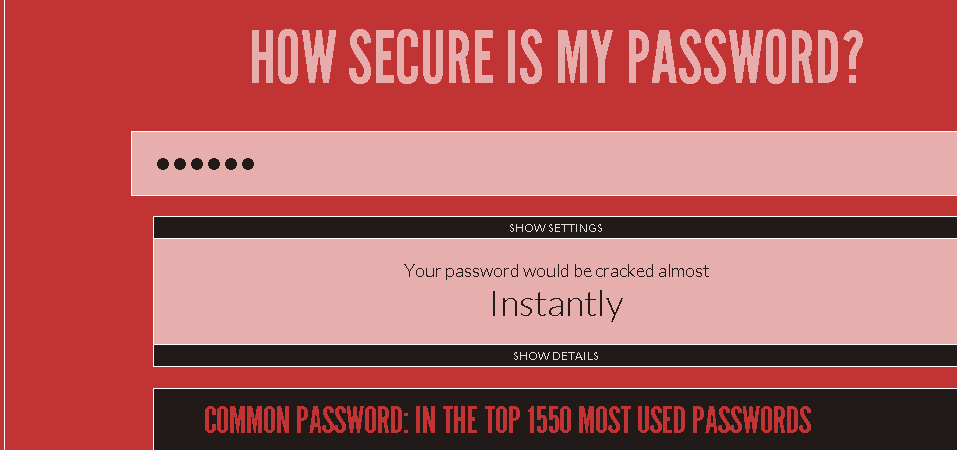 A secure password is one of the first steps towards more digital security. If your password has been cracked, hackers can get access to valuable personal information, steal your money and damage your reputation by distributing harmful content in your name. DW Akademie’s Natalia Karbasova offers some basic rules to help you create secure passwords and checks out selection of tools for password management and security check.
A secure password is one of the first steps towards more digital security. If your password has been cracked, hackers can get access to valuable personal information, steal your money and damage your reputation by distributing harmful content in your name. DW Akademie’s Natalia Karbasova offers some basic rules to help you create secure passwords and checks out selection of tools for password management and security check.
![]() read more
read more
Distant witness: NPR’s Andy Carvin tweeting news and revolutions
 Andy Carvin is a senior strategist at National Public Radio (NPR) and leads their social media strategy. He describes himself as a “real-time informational DJ and occasional journalist, but not a social media guru”, although many would regard him as just that.
Andy Carvin is a senior strategist at National Public Radio (NPR) and leads their social media strategy. He describes himself as a “real-time informational DJ and occasional journalist, but not a social media guru”, although many would regard him as just that.
Andy Carvin’s Twitter feed @acarvin is regarded as essential for following breaking news events, particularly in the Middle East. Carvin has some 88,000 followers on Twitter. But it’s his method of aggregating, filtering and verifying news sources through social media that has attracted global attention.
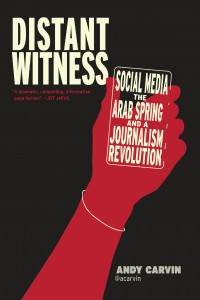 Carvin’s new book Distant Witness (CUNY Journalism Press) explores how social media and the Arab Spring have caused a revolution in journalism. It’s essential reading for journalists. Not only does Carvin tell a compelling story, interwoven with gripping Tweets, he offers insight into citizen journalism and how news organisations can use social media effectively. As Carvin puts it: “storytelling has entered new territory”.
Carvin’s new book Distant Witness (CUNY Journalism Press) explores how social media and the Arab Spring have caused a revolution in journalism. It’s essential reading for journalists. Not only does Carvin tell a compelling story, interwoven with gripping Tweets, he offers insight into citizen journalism and how news organisations can use social media effectively. As Carvin puts it: “storytelling has entered new territory”.
From the overthrow of President Ben Ali in Tunisia in 2011, Carvin explains how he was able to build upon his own knowledge of the Tunisian blogosphere, and develop a network of reliable sources on Twitter. But when he needed help for translations or to verify sources such as videos on YouTube, Carvin called for volunteers from his Twitter followers.
This method Carvin writes, “increases the chances of me getting a fast response, it also lets me cross-reference translations from multiple people, improving the overall accuracy.”
For Carvin, Tunisia would be the start of an extraordinary period of live tweeting revolutions and protests across the Arab world.
“And we had witnessed it online, from start to finish, not through the lens of mainstream media, but through protestors themselves.”
Deutsche Welle’s Rachel Baig asked Andy Carvin about citizen journalism and working as a “living, breathing real-time verification” machine.
![]() read more
read more
Election reporting does and don’ts – after polling day
In some countries, election results are announced within a day, in others it can take a week or longer. This period around the release of the results is often the most tense, and can be marred by violence. In the third part of our series on election reporting, DW Akademie’s Kate Hairsine brings you some dos and don’ts for reporting elections after polling day.
DO be responsible when reporting incidents of violence
It is important to inform people about violent incidents, but you need to do so in a responsible way. Following the 2007 elections in Kenya, the local media was criticized for further inflaming violence.
– Always verify facts before reporting: Where exactly did the incident take place? Who was involved? How many people were involved? Were people killed or injured? What triggered the incident?
– Try to find several sources of information (witnesses, journalists on location, police, army, doctors at the local hospital). Name your sources in the report (and don’t rely on SMS messages from people at the scene who aren’t considered reliable sources!)
– Try to get comments on the violence from people from different ethnic groups and different sides of the political spectrum (but do not air calls for retaliation or more violence)
– Don’t use emotional language or comment on the incident yourself
– Local language stations may be criticized for their neutral broadcasting as they are often expected to share community views. Explain your reasons for being neutral on air
DO take care when reading out SMS messages
Many radio and television stations read out SMS messages or have an SMS ticker. These might represent people’s opinions about the elections or results, but hateful messages have no place on air. Also, be balanced by reading out messages from diverse areas, or from people supporting different parties or groups.
DO cut off callers using hate speech on air
Talkback radio gives people the opportunity to be heard. Plus it’s a lively and cheap way to get diverse opinions on air. But hosts need to be extremely careful that their show doesn’t inflame tensions.
– Cut off callers (and politicians) who use hate speech, ethnic baiting or call for violence
– Explain to the listeners that cutting off such callers is in line with station’s policy and your radio won’t support violent talk (so that you don’t seemed biased)
– Ask listeners to call in with their comments about hate speech
– While some stations argue that airing inflammatory language is good for ratings, the risk of conflict in this post-election period is just too high. Responsibility comes before ratings!
DO prepare messages of peace
If you live in a country with a history of conflict, peace messages, songs and jingles featuring prominent individuals (imams, priests, musicians, movie stars, sports stars, even gangster groups who have promised not to stir up trouble) can go far to calm tensions. Alternatively, ask children for messages of peace. Another idea is to get different groups of people, such as the elderly, market women, or school children, to sing the national anthem (or another song associated with national pride) and play the different versions together with peace messages
DO continue to monitor the counting
Just because the polling day is over, it doesn’t mean that the media’s watchdog role is finished. Things to check:
– Can observers, the media and nominated political party representatives freely enter all tally centers (including at local, district and and regional levels)?
– Do the centers have adequate lighting and security?
– Is the counting taking longer than normal? Why?
DO put the results in context
When the results are finally announced …
– Seek comments from the winners and losers
– Mention the final turnout figure
– Get some reactions from a diverse cross section of people on the street.
– Add some independent analysts and comments from international and domestic observers
DO analyze the results
Your job isn’t over when the results are announced.
– How much did someone win by? Who mainly voted for them (male, female, old young, a particular ethnic group)? Has this changed since the last elections.
– What percentage of people voted? Were there particular groups who didn’t vote? Why? Has this changed from the last elections?
– How many invalid votes where there? Where their regions with more invalid votes? How does this compare to last election?
– What are the country’s prospects under the elected leadership in various fields, such as the economy, law and internal security?
DON’T broadcast political press releases about vote rigging without context
Politicians who have lost the vote (or look like loosing) often favor the strategy of putting out a press release alleging the elections were rigged (which may or may not be true). Don’t just read out the whole press release on air. Rather
– Summarize the allegations using neutral language
– Add information from independent election monitors
– Seek a comment on the allegations from the electoral commission. If they say they will address the comments a later press conference, mention this in your reporting
DON’T forget to continue to monitor the government
As an election reporter, you have a sound grasp of what promises the new government made during its campaign so you are ideally placed to follow up whether its living up to those promises.
For more information, check out UNESCO’s list of online election reporting resources as well as the ACE Electoral Knowledge Network, which is an amazing source information about elections and electoral systems worldwide.
I also highly recommend the “Media & Elections” handbook as well as the “Election Reporting Handbook” by the International Journalist Federation
Talking to a child soldier
In the third part of our series about difficult and challenging interviews, DW Akademie’s Rüdiger Maack tells us how he interviewed a child soldier in Liberia.
General Snow is dancing. Only he can hear the music he is dancing to. For the rest of us it is just the sound of heavy rain dripping on the leaves of the surrounding trees of Clay Junction. General Snow jumps frenetically from one leg to the other, holding his Kalashnikov rifle with both hands over his head.
![]() read more
read more
Ushahidi launches Uchaguzi for free, fair and peaceful elections in Kenya
Kenyans go to the polls for the country’s general elections on Monday, March 4. However, any repetition of the post-election violence that followed the 2007 elections is a major concern.
Ushahidi is an open source platform that was initially developed to map and monitor reports of violence in Kenya after the 2007 elections. Ushahidi gained a lot of attention for the innovative way it was able gather reports from citizens by SMS and the web and visualize those reports on a map. It’s since been used in countries such as DRC, India and by broadcasters such as Al Jazeera. In the lead up to this year’s election, the Ushahidi team has launched a new version: Uchaguzi – which is the Kiswahili word for elections.
If you take a closer look at the categories for reports, the events or incidences the platform will document include: pre-election, positive events, leadership, polling station issues, ballot and results, urgent, dangerous speech and security.
To find out more about Uchaguzi, DW Akademie’s Christine Harjes spoke with project leader Daudi Were.
![]() read more
read more
Election reporting dos and don’ts – polling day
Covering election campaigns was the focus of Part one in our series on Election Reporting: dos and don’ts. In this next post, DW Akademie’s Kate Hairsine explains what journalists need to think about on the big day – polling day.
DO be familiar with the election process
It might sound obvious, but as a reporter, you need need to know the ins and outs of the election process because otherwise you can’t effectively monitor the elections and report on any problems and misconduct. Some of the things you need to know BEFORE you go out to report on election day include:
– What is the procedure for opening the ballot station?
– What are the rules about campaign materials and canvassing near polling stations?
– What steps do voters have to go through to cast their votes?
– What is the procedure for sealing ballot boxes when voting closes?
– Where does the vote counting take place and who is entitled to accompany the ballot boxes there?
– Who is allowed to be present while votes are counted?
– How does the vote counting work exactly?
DO be at the polling station before it opens
If you have been allocated a particular polling station or district, you need to be there before the doors open. It gives you time to assess the atmosphere and talk to some people before you make your first report.
– Check if polling officials have arrived at the prescribed time
– Check if campaign material has been removed from inside the prescribed area around the polling station
– Ask people if they have been intimidated on the way to the polling station or while they are standing in line
– Ask if people have been promised anything such as food or money for their vote
– Find out if people were able to travel easily to the polling station: are roads open, are there any impediments such as a collapsed bridge or military checkpoints making the journey to the polling booth longer?
– Talk to any physically disabled people, the elderly or pregnant women in queue about how they got to the polling station and if there were any special provisions available for their transport
– Ask what time people started queuing up and why they are making the effort to vote
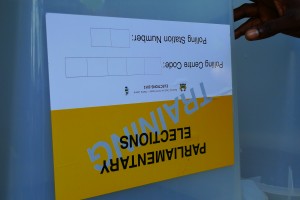
In Sierra Leone, election officials at one polling station tried unsuccessfully to use this ‘training’ ballot box
DO monitor the opening of the polling station
Depending on your country’s procedure for opening the polling station, there are several important points to look for here:
– Check if there are the correct number of ballot boxes (I have been at a polling booth where there should have been four ballot boxes – one each for president, parliamentarian, mayor and councilor – but one was missing, causing an extremely tense situation)
– Check if the ballot boxes are the correct ones for use in the elections, for example, do they have a serial number on them which allows the box to be traced in case of irregular voting
– Watch while ALL of the ballot boxes are opened in front of those present to show they are empty
– Monitor whether ALL the ballot boxes are correctly signed and sealed before voting starts
– Report whether the polling station opens on time
– Report whether election observers are present
– Watch who are the first to vote – are pregnant women, the elderly and the disabled allowed to go to the front of the queue?
– Observe if people are able to cast their vote in secrecy
DO keep talking to people during the day
You might have been up since four in the morning and feel like you have talked to every possible group of people at the polling station, but it is important to keep alert and keep monitoring the voting process even if everything seems to be running smoothly.
– Find out if any people are leaving without casting their vote because they are fed up of waiting
– Ask if there are any people who are unable to vote because their name isn’t on the electoral roll
– Monitor whether there are enough ballot papers
– Look for any illegal canvassing
– Ask people of various ages and backgrounds how they feel about voting in the election (but DON’T ask them who they voted for!)
– Ask if people how they found the voting process (easy, confusing …. )
This can also be a good time to collect some human interest stories. Here a couple I have found during the slow period on an election day:
A blind man who had to trust the person accompanying to vote for who he wanted because he was unable to read the ballot paper himself
An 94-year-old woman who talked entertainingly about how voting had changed over the decades – she cast her first vote by putting a marble into a certain jar and now she had a biometric voting card and a ballot paper.
DO stay for the close of polls
Things to look for as the polling station closes:
– Monitor if voters are being turned away at closing time without being allowed to vote even if they are still queued up
– Does the polling station close on time / close early / stay open beyond closing time even if no one is left in line?
– Observe if the ballot boxes are properly sealed before being taken to be counted
– Watch if the counting is going smoothly
– Check if observers are monitoring the counting process
– Report if there are any counting difficulties – I have observed ballot counting where the generators have run out of fuel and counting has continued by candlelight, making it difficult to see the ballot papers and difficult to check for any wrongdoings
DON’T discuss campaign issues on air while the polls are open
In many countries, parties must cease campaigning a day or two before election day. If you continue to discuss campaign issues while people are still voting, you and your media outlet could be construed as influencing the ballot. Not only is this against many media codes of practice, it could also exacerbate any tension. On election day, stick to your job of monitoring the elections and giving people a chance to voice their feelings about how the election process is going.
DON’T broadcast any comments about politicians or parties
Your job on election day is to be a neutral observer. Don’t run the risk of sparking violence by airing comments (negative or positive) about any particular party or politician. Even if someone is just giving vent to their anger about how disorganized the elections are and criticizing the current government for this, you should not air it (even if it is true).
DON’T make predictions about the outcome before the close of the polls
This is particularly dangerous. Firstly, you could influence the outcome of the elections as people might think that their preferred party has lost anyway and so change how they vote. Secondly, if the actual result differs from your predictions, it could spark conflict and violence. Just don’t do it!
DON’T make predictions about the results of voting irregularities
Although your job is to report any problems or irregularities on polling day, you can not predict what will happen as a results of these irregularities. In some countries, it is the extent of the vote tampering which is important. For example, if votes from a particular station or even a whole district are annulled, it might not change the overall results of a presidential election where millions of people are voting. In this situation, even if hundreds of polling stations are annulled, it might not void the whole election. It can be a different story though at local level where a handful of annulled votes can make all the difference to who gets in.
For more information, check out UNESCO’s list of online election reporting resources
I also highly recommend the Media & Elections handbook as well as the Election Reporting Handbook by the International Journalist Federation
In Part 3, Kate will take a look election reporting after polling day.
Election reporting dos and don’ts – before the polls
In any country, elections are the political high point of the year. Campaigns can be drawn out or seen as a forgone conclusion for an incumbent political party or leader, but they can also be violent, dividing communities and straining stability in democratically fragile countries.
The media of course can make a pivotal contribution to whether a country’s elections are free and fair. One of its main roles is to be an accurate source of information – letting voters know about the issues, the politicians and their promises and manifestos and how the electoral system works. The media also has an watchdog role in exposing any wrongdoings. In addition, the media gives voters an important forum to express their views. In the first of our three part series on election reporting, DW Akademie’s Kate Hairsine brings you some dos and don’ts of reporting in the pre-election period.
![]() read more
read more
Social science discovers data-driven journalism
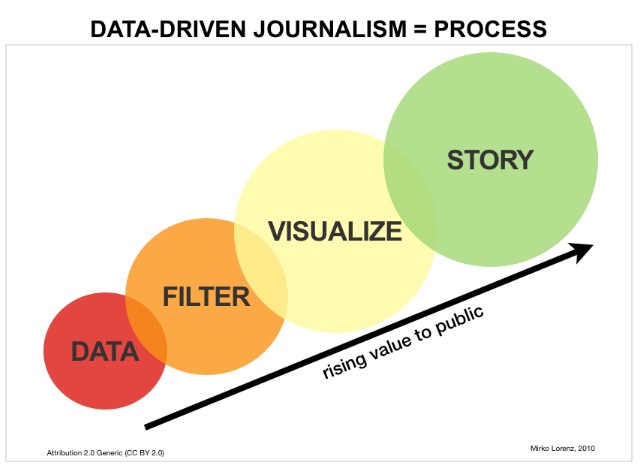 The social sciences can profit from data-driven journalism and vice-versa. Staff at the University of Zurich’s Institute of Political Science are so convinced of this that they’ll begin offering a major in data-driven journalism as part of their Master’s program starting in September 2013. The Institute’s head, Professor Fabrizio Gilardi, believes that the data-driven journalism course won’t just better qualify students for a career in the media. He also hopes that social scientists will start to utilize the techniques of data-driven journalism to present their research in more appealing ways. DW Akademie spoke to Gilardi about the new course.
The social sciences can profit from data-driven journalism and vice-versa. Staff at the University of Zurich’s Institute of Political Science are so convinced of this that they’ll begin offering a major in data-driven journalism as part of their Master’s program starting in September 2013. The Institute’s head, Professor Fabrizio Gilardi, believes that the data-driven journalism course won’t just better qualify students for a career in the media. He also hopes that social scientists will start to utilize the techniques of data-driven journalism to present their research in more appealing ways. DW Akademie spoke to Gilardi about the new course.
![]() read more
read more
Tweets help visualize information density of African cities
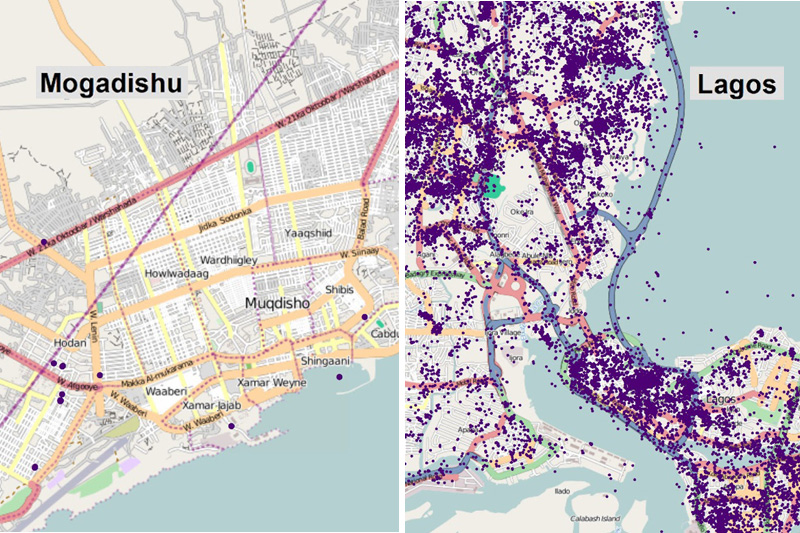
Cities are more than a collection of streets and houses or people and plants. “Cities have become both digital and digitized”, says Mark Graham, Director of Research and a Research Fellow at the Oxford Internet Institute. These days an indicator of the development of a modern city is not just its physical infrastructure.
In dozens of cities across Africa, Graham has produced a visualization of geocoded Tweets. And an interesting pattern emerges, showing the footprint of internet penetration and the use of mobile devices. While in cities such as Nairobi, Cairo or Cape Town you can see important information hubs, other cities such as Mogadishu and Addis Ababa remain almost completely blank.
![]() read more
read more



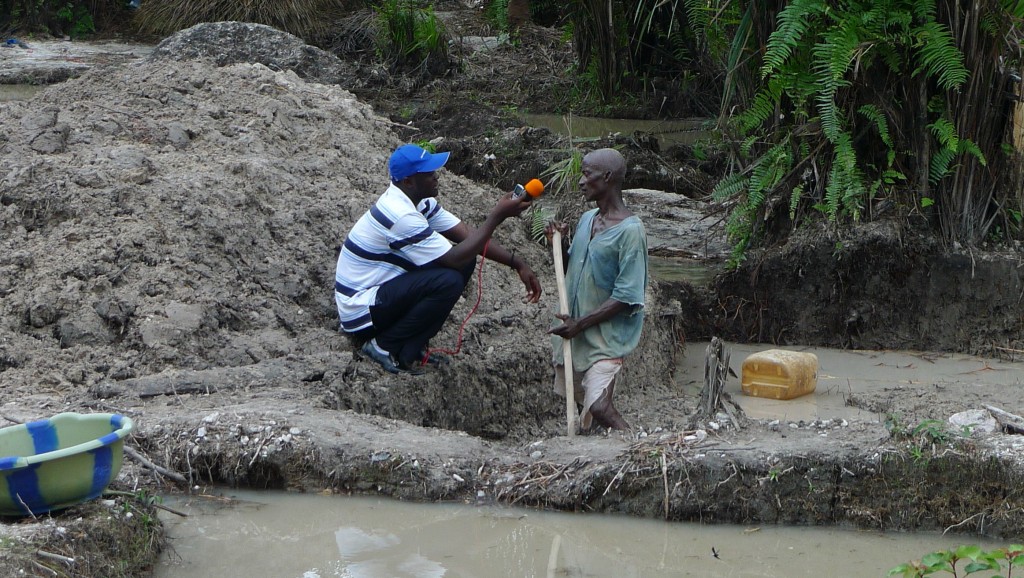

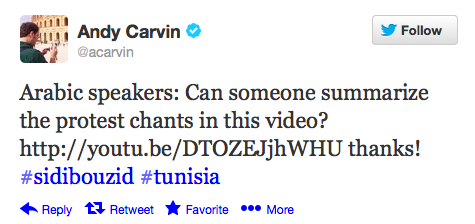
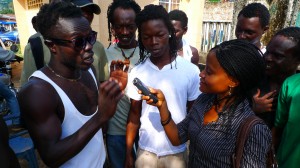

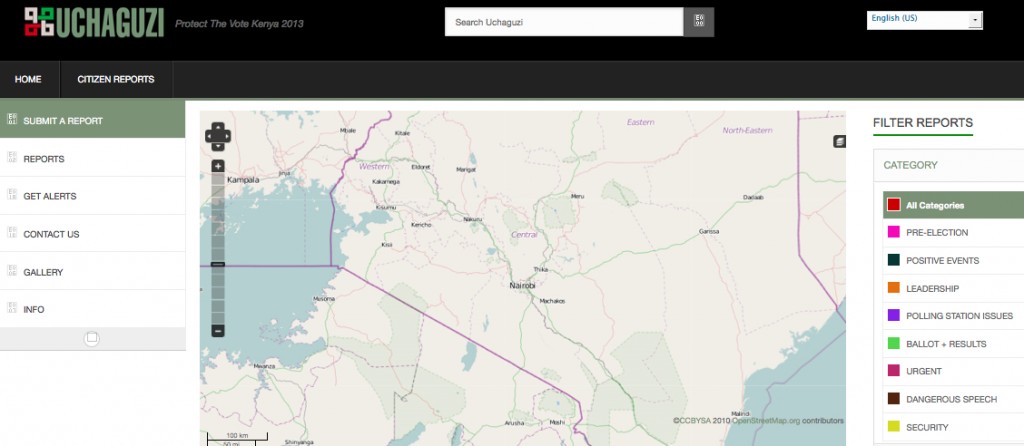
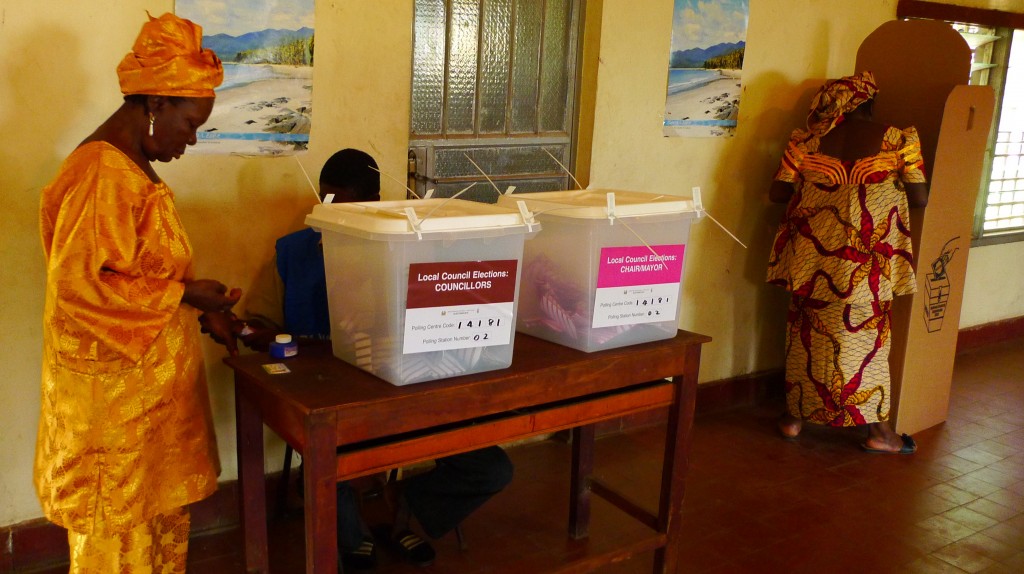
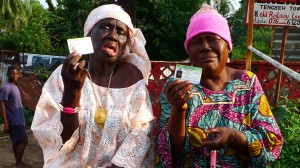
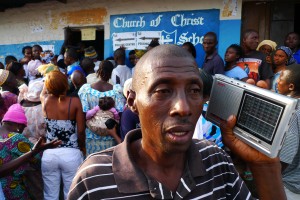
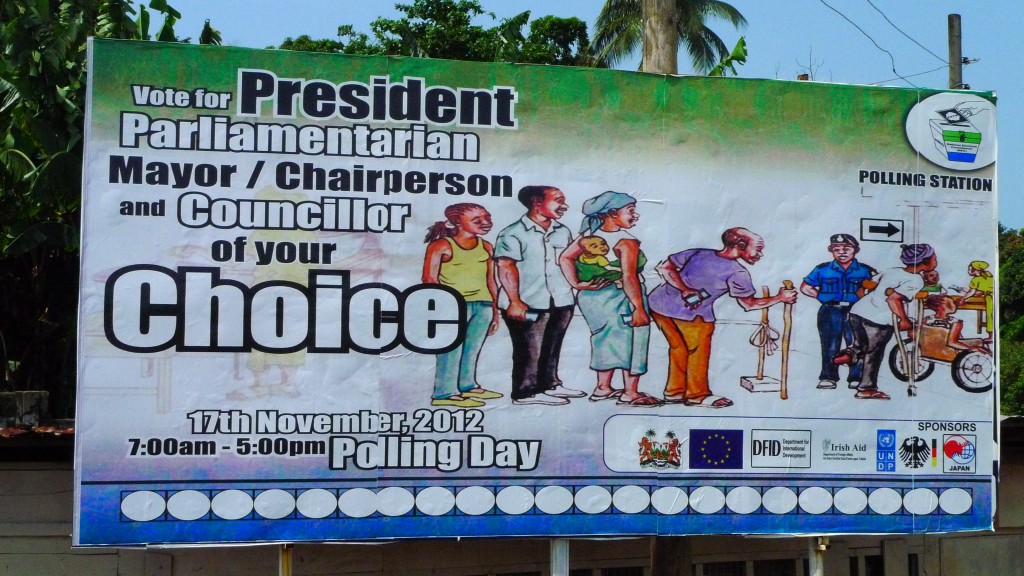




Feedback